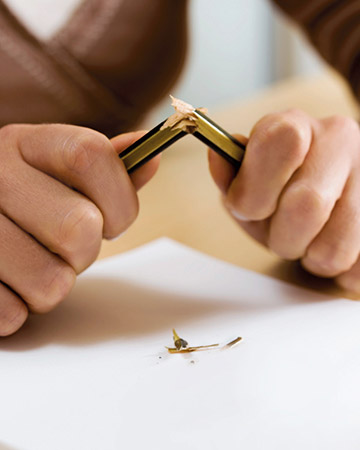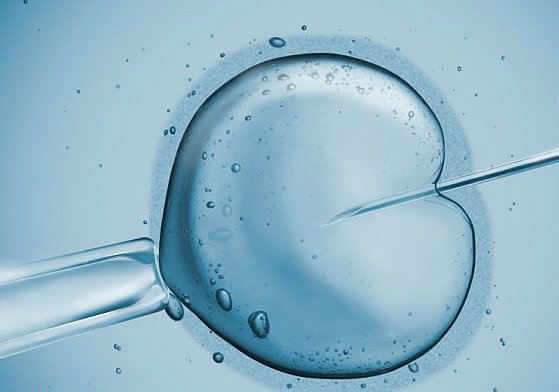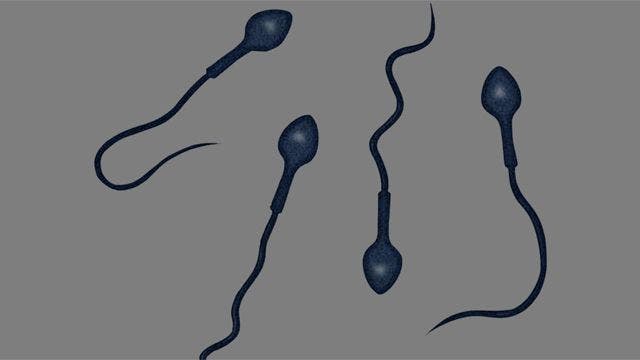
Not Just in Your Head
You don’t need a doctor to tell you that anxiety can have a negative effect on your health. But do you really know the toll that long-term stress can take?
Stress is the body’s reaction to something that taxes or exceeds its resources, says Frances Cohen, a psychologist at the University of California, San Francisco. When we perceive something as harmful, our brain triggers hormones such as cortisol, which flood the body and contribute to various physical responses.
Here are several ways stress can affect different aspects of your health — and how you can protect yourself against them.
Lack of Sleep
Anxiety is one of the main causes of insomnia and sleep disruption: When you think about something stressful while lying in bed, it’s harder for your body to relax and drift off to dreamland — and this nightly pattern only gets worse as your brain and body learn to dread bedtime.
You may also be deliberately robbing yourself of much-needed rest by staying up too late or rising too early: Most of us need seven to nine hours of sleep a night, but many overscheduled and overworked adults regularly get by on less. Skimping on sleep can cause fatigue and attention problems, and increase your risk of disease.
Weakened Immune System
We’ve all experienced the nasty cold that comes after a deadline — a reminder that psychological stress can weaken defenses and make us more susceptible to germs. It can also slow our recovery from illnesses; in fact, research has shown that stress hormones actually make immune cells age faster.
It’s not just minor ailments to which stress leaves us vulnerable, either: Consistently high levels of stress can reduce a woman’s ability to fight infections such as human papilloma virus (HPV), which can cause cervical cancer.
Low-Level Inflammation
Whether you scrape your knee, twist your ankle, or succumb to strep throat, the body’s reaction is the same: The immune system sends in white blood cells to destroy bacteria and repair the tissue, causing redness, swelling, and warmth. This healing process, called the inflammatory response, is one of the body’s most basic survival instincts.
But when bombarded by unrelenting stress, the immune system works overtime, releasing a stream of inflammation-promoting compounds that spread throughout the body, damaging cells and tissues. If left unchecked, low-level inflammation can simmer for years, contributing to a range of seemingly unrelated ailments such as heart disease, asthma, and cancers.
High Blood Pressure
Stress and anxiety stimulate your nervous system to raise levels of hormones like adrenaline and cortisol, which narrow blood vessels and therefore increase your risk of developing hypertension. Only about a third of people with hypertension (blood pressure higher than 140/90) know they have it — even though it affects around one in three American adults.
The condition can be bad news if left untreated, raising your risk of such ailments as heart attack, stroke, kidney failure, and blindness. Fortunately, eating a balanced diet and exercising regularly — and learning to stress less — can help you stay healthy.
Blemishes and Wrinkles
Just as inflammation can have a negative effect on your long-term health, it can also have a physical — and much more immediate — effect on your appearance. Stress and fatigue can lead to puffy skin and a blotchy complexion, dark circles under the eyes, and early wrinkles. Hormones triggered by stress can also cause breakouts well into adulthood.
In addition to getting enough sleep and reducing stress levels, you can calm redness and blemishes with serums and gels that contain extracts of anti-inflammatory herbs like chamomile, calendula, and lavender
Aches and Pains
Millions of us work at desks every day, and our bodies pay the price. From stiff necks and tension headaches to throbbing backs, head-to-toe pain can result from staring at a computer for hours on end — and when you’re stressed about your job, you’re less likely to take frequent breaks and more likely to overdo it.
Inflammation caused by stress has also been linked to migraines and rheumatoid arthritis, two chronic pain conditions that may improve with stress-reduction techniques.
Mental Health
Trying to do too much at once — whether it’s work assignments, family obligations, or social appointments — can leave you feeling burned out and empty inside. 
Too often, when stressors start to pile up, the first things we push aside are the ones that can help us cope: quailty time with friends and family, alone time for reflection and enjoyment, a good night’s sleep, and regular exercise. These activities help our brains and bodies cope with the harmful effects of stress, and without them to keep us grounded, it’s easy to spin out of control.
Substance Abuse
When you’re juggling the multiple responsibilities of work and home, being frazzled can start to feel normal. Many people have never learned healthy ways of dealing with stress, instead turning to alcohol or nicotine.
Weight Gain
Stress, fatigue, and weight gain are common companions: Sleep deprivation can cue your body to release stress hormones, triggering weight gain. Studies have shown that those who sleep fewer than eight hours a night have higher body mass than people who sleep a full eight hours, and that babies who sleep fewer than 12 hours a day are twice as likely to be overweight by age 3.
Meanwhile, stress can also lead to poor food choices; this can put your body on a blood-sugar roller coaster, which causes low energy (and, in turn, makes it even harder to get to the gym or outside for a walk). And the less time you have to take care of yourself, the harder it is to make healthy changes.
Infertility
Infertility is a medical condition used to describe couples who have tried unsuccessfully to conceive for 12 months. By the time a woman or a couple receives this label, they’re often highly stressed, says Tracy Gaudet, M.D., director of Duke Integrative Medicine at Duke University — which only makes matters worse. (Read Dr. Gaudet’s guide to coping with infertility.)
The higher a woman’s stress level, the lower her fertility. Highly stressed women can stop ovulating altogether, which makes sense biologically: In the hunter-gatherer days, stress probably indicated a lack of food or an imminent threat — not wise times to bring an infant into the world
Low Libido
There are quite a few external causes of low libido and tension between you and your partner, and many of them have to do with stress. The first year or two after the birth of a baby, for instance, when both parents are often overwhelmed and sleep-deprived, is a notorious libido killer. Career-focused years can leave women depleted and stressed, with all of their passion going into their jobs. And chronic stress can lead to depression, also a cause of plummeting desire.
Gastrointestinal Issues
That feeling of butterflies in your stomach may very well have a physiological basis: Your GI tract has its own nervous system, which is why stress can cause digestive problems such as diarrhea, heartburn, and irritable bowel syndrome (IBS). Learn to manage stress — and reduce GI problems — by exploring massage, art therapy, breathing exercises, and other relaxation techniques.
Self-Fulfilling Pessimism
There’s nothing wrong with considering the potential pitfalls of your current situation — for a little while. It’s smart to anticipate and plan for how you’ll handle a given obstacle.
But endlessly stressing over what might go wrong often proves more than unproductive. It can actually set you up for the very thing you fear the most. When you visualize a negative outcome, you approach things differently. You operate, ironically, in a way that supports the result you most want to avoid.
Source: Whole living











